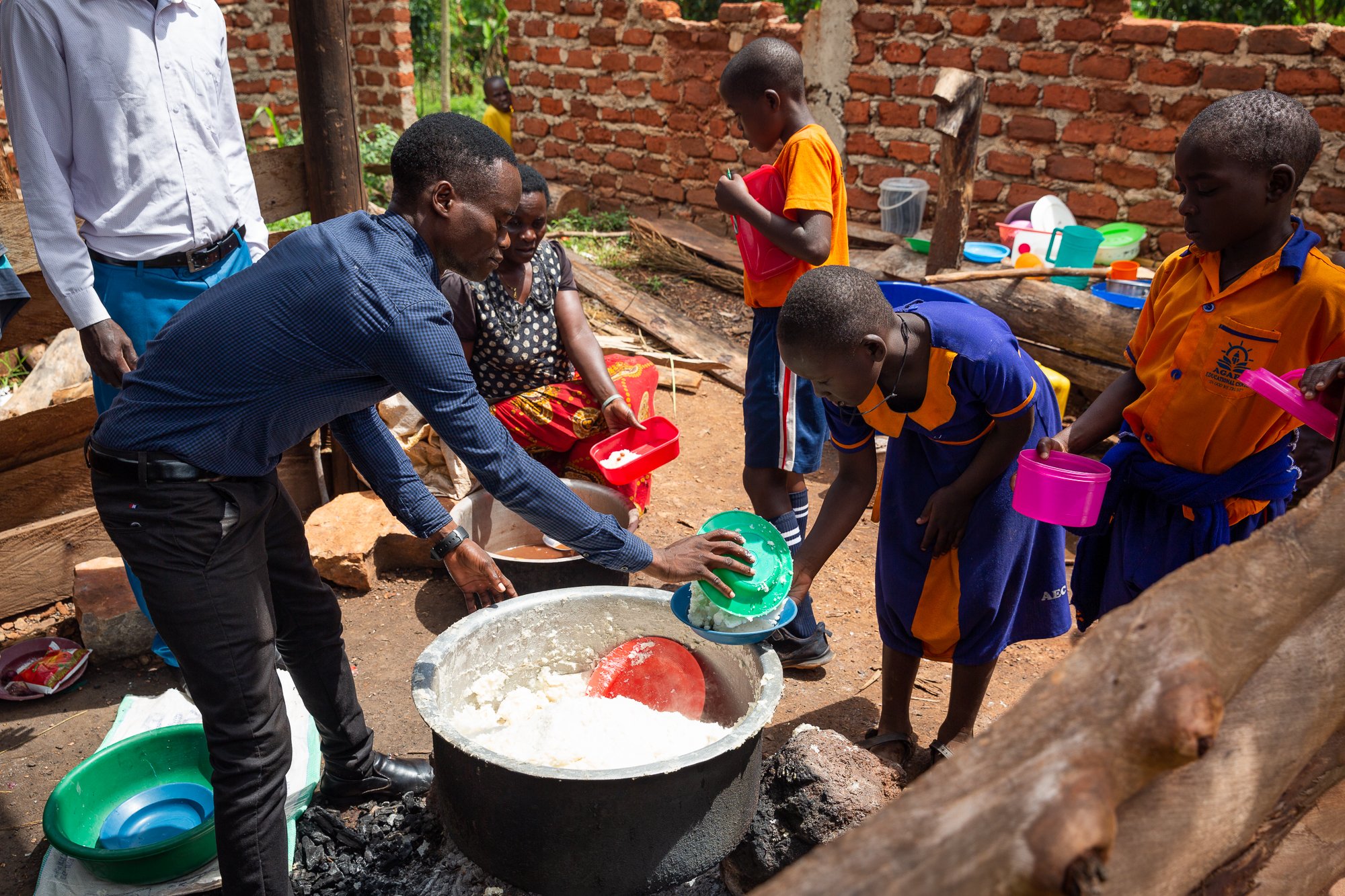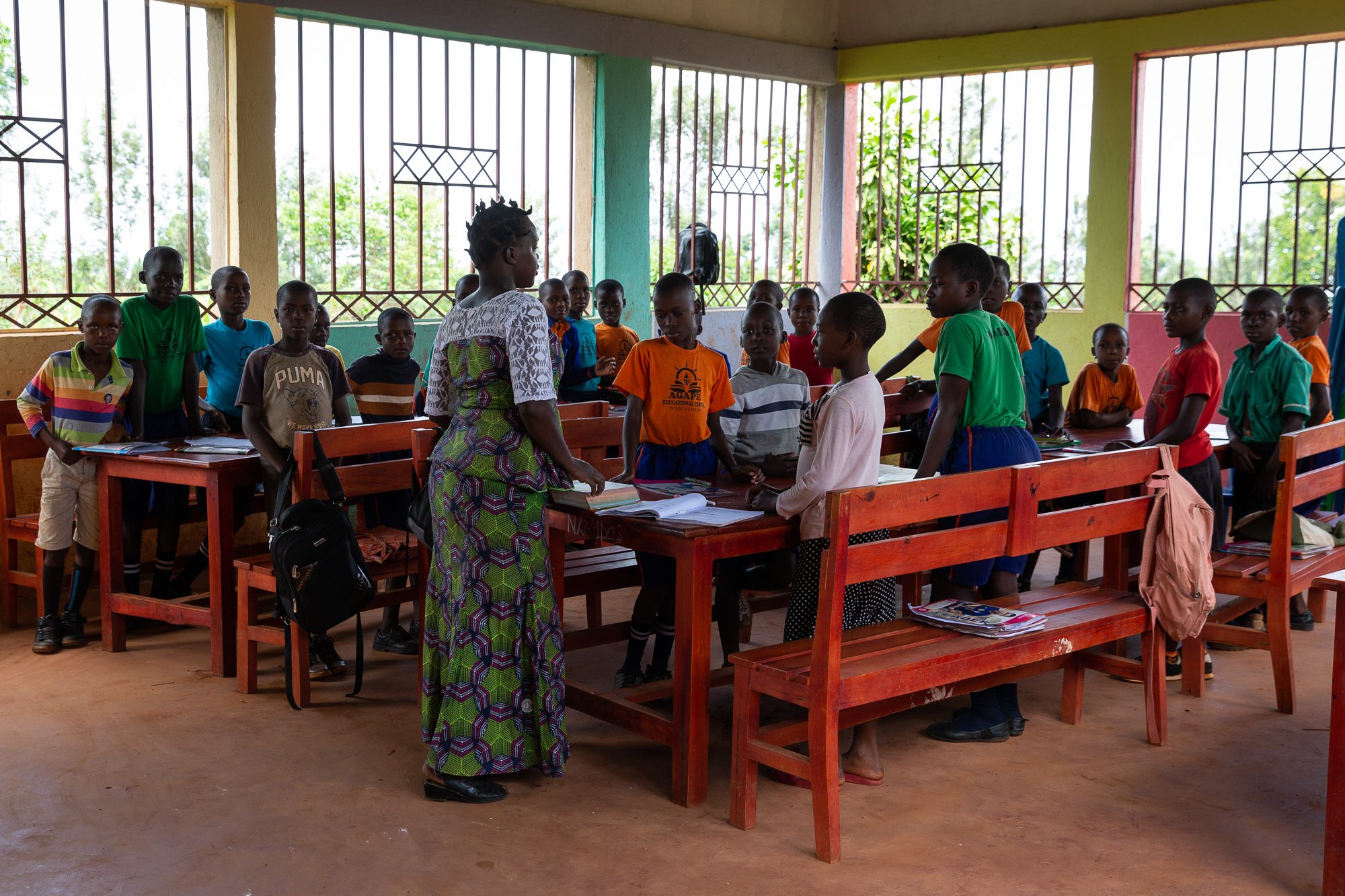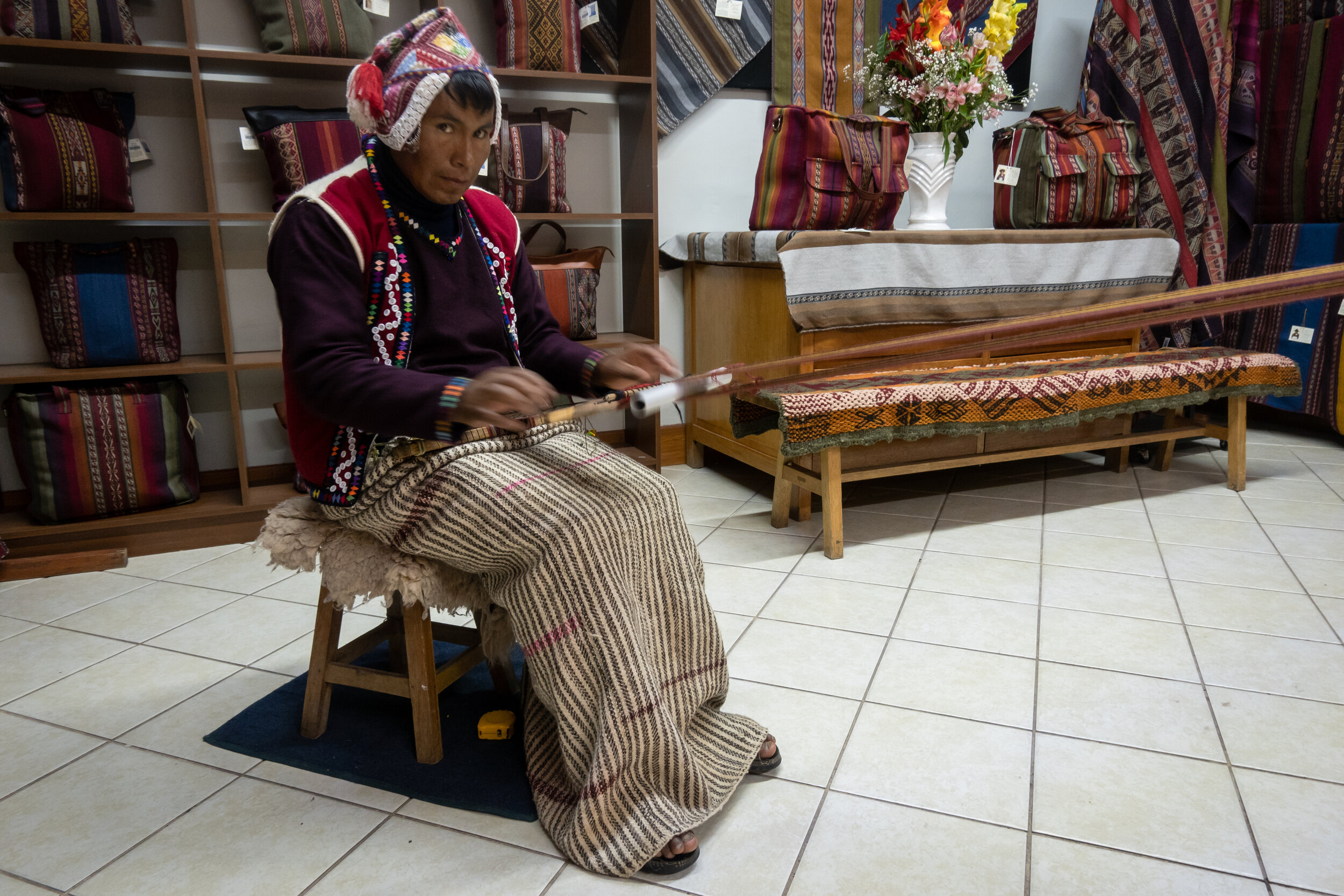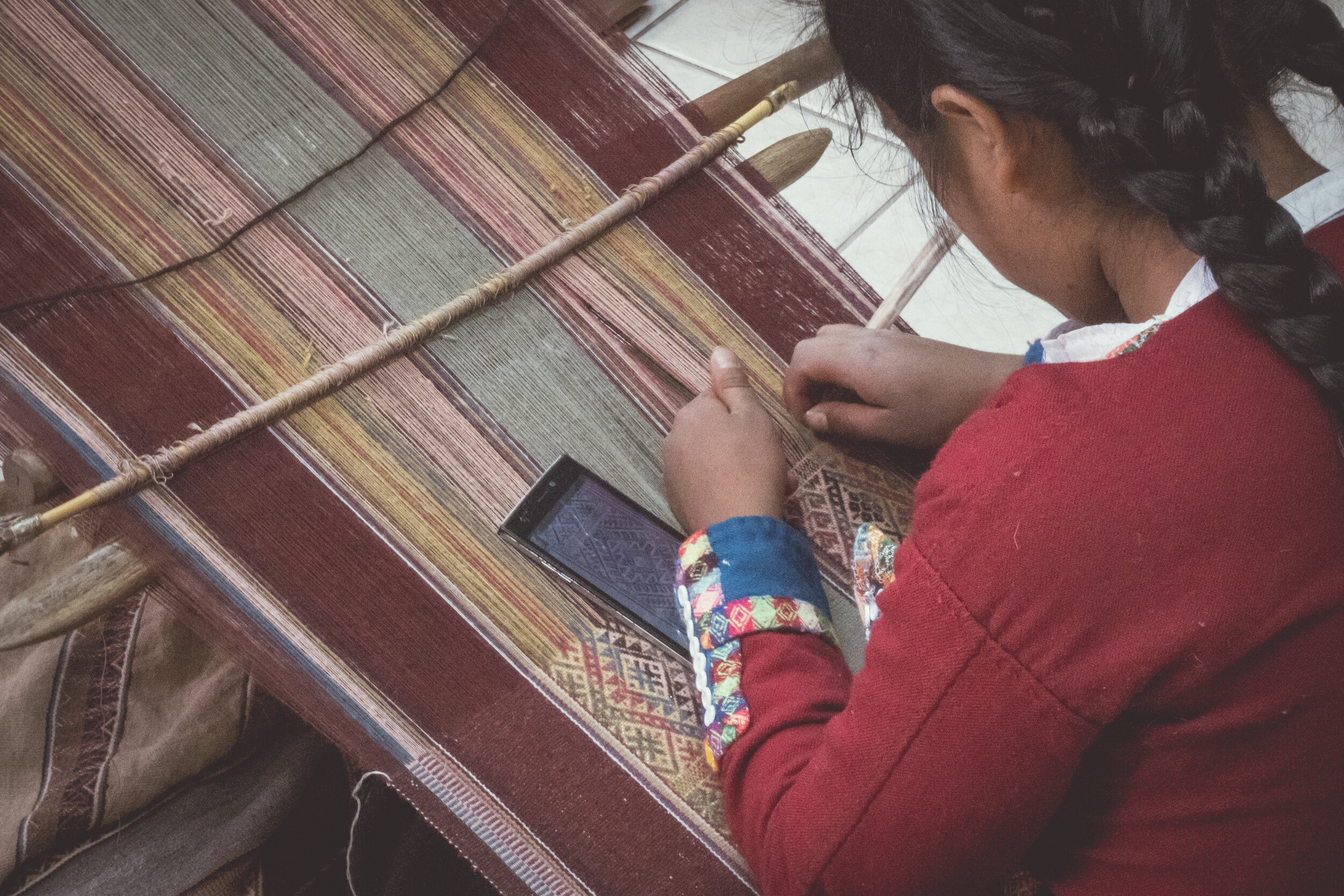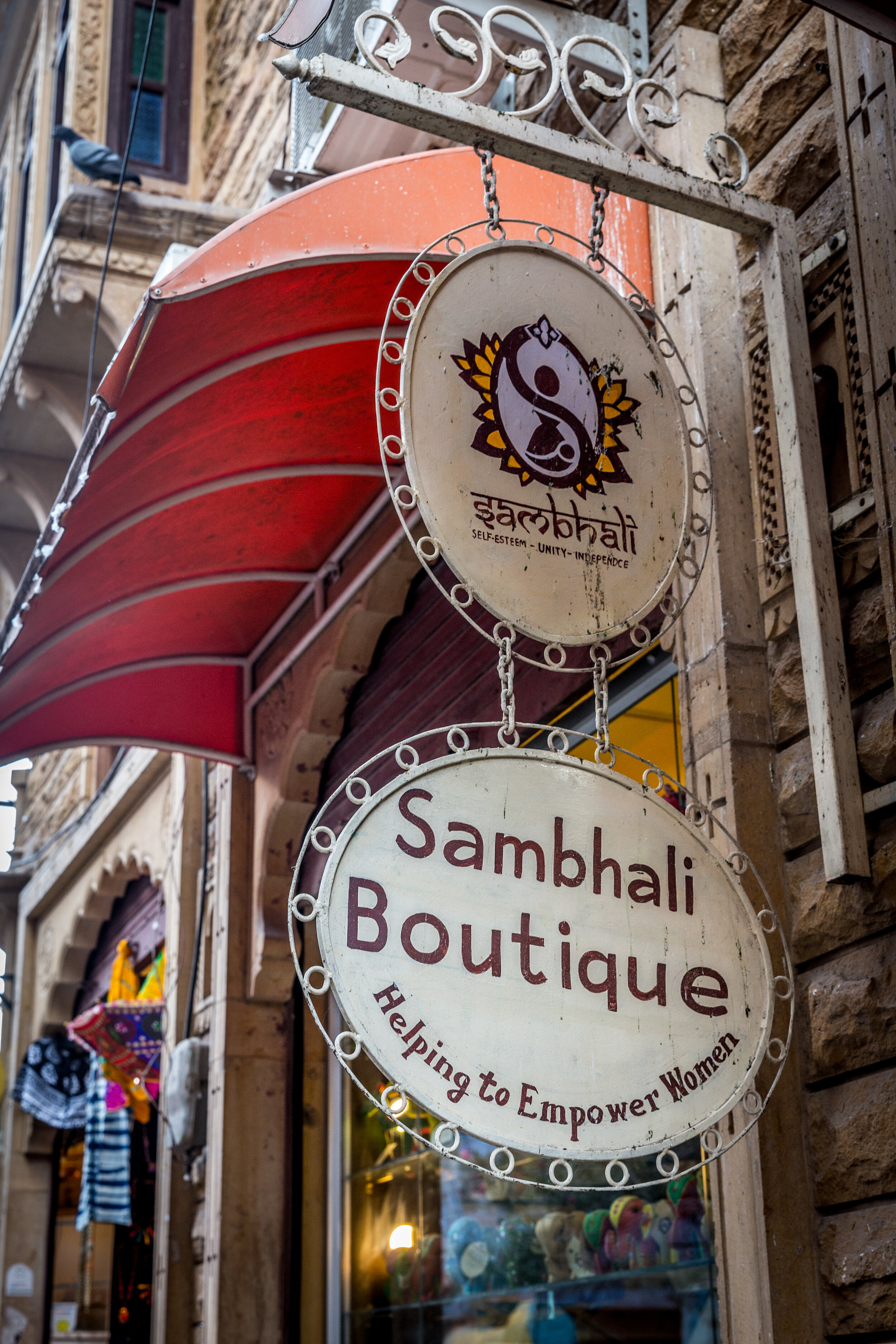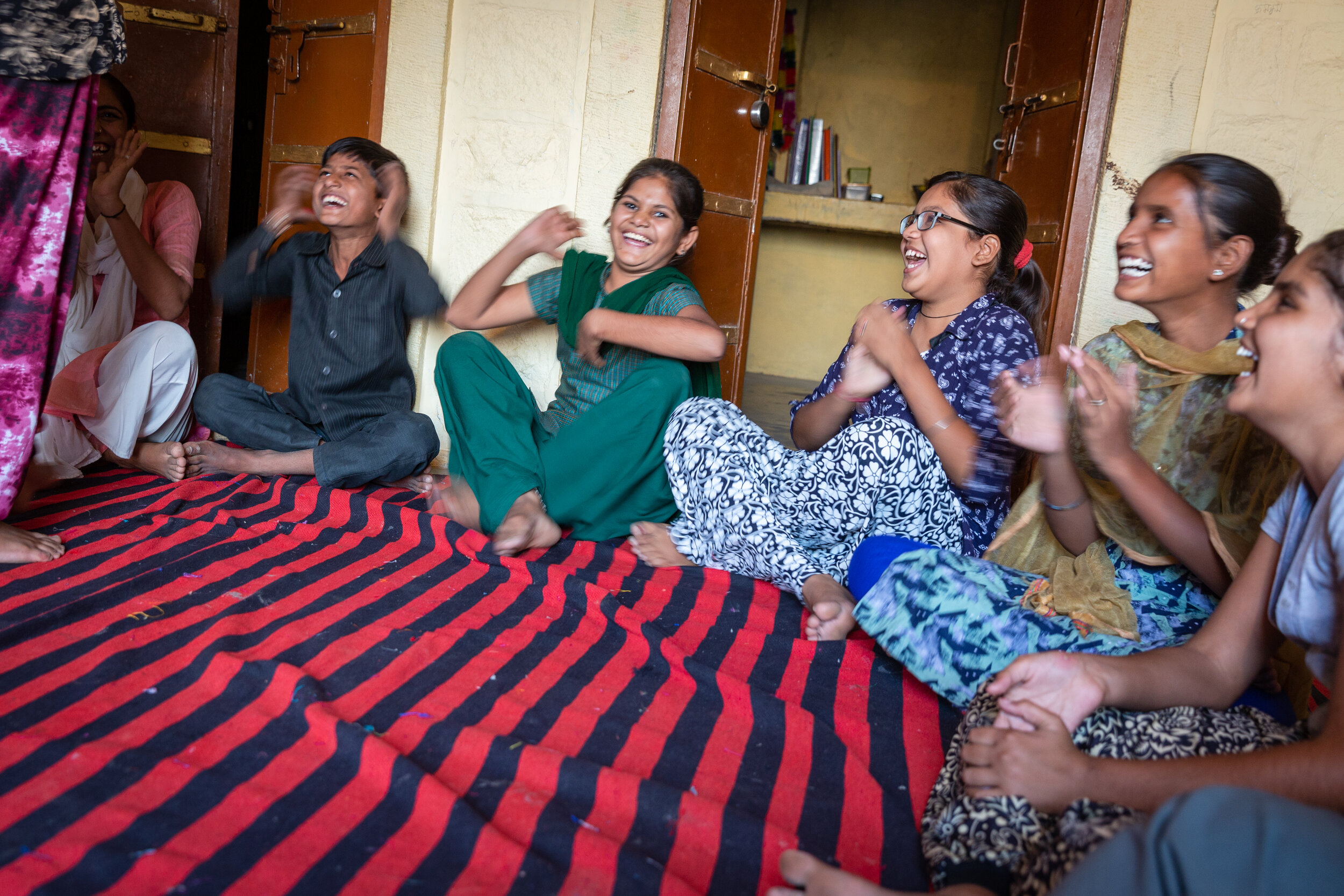In support of the Children's Center, PEMU acquired 3 hectares of land within the village to grow crops with the intent of becoming a fully self-sustaining operation.
The PEMU team walk alongside the maize crops growing on their plot of land.
The main crops grown this year were corn and beans, key components of the children's daily diet, and there are plans to add others like cassava and sweet potato.
The beans were the first to be ready and a few harvests have been made, each yielding 10-20 kg. 4kg/day are used to feed the children.
Dried beans harvested from the land.
The first corn harvest took place at the end of July and resulted in enough grain to yield 650kg of corn meal, which when cooked into posho, a mixture with water that becomes dough-like, will feed the orphans for about 5 months. This helps lift a tremendous weight off Brian and his team.
Mary Kamega, the Center’s cook, prepares posho for the children’s lunch in the open air kitchen.
The meals prepared for the children are simple, but nutritious and filling, and always eagerly awaited and enjoyed.
Children at the Agape Children’s Center wait in line for lunch service.
Young children at Agape enjoy their lunch.
The team are now focused on preparing the land for the next planting season; the rains have already started.




